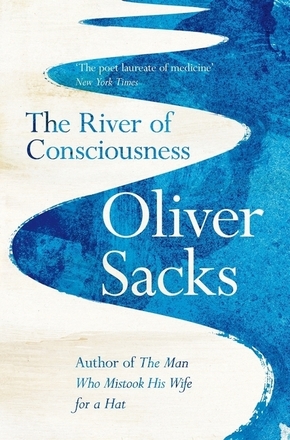
| Verlag | Macmillan Publishers International |
| Auflage | 2018 |
| Seiten | 256 |
| Format | 13 x 19,6 x 1,6 cm |
| B-format paperback | |
| Gewicht | 188 g |
| Artikeltyp | Englisches Buch |
| ISBN-10 | 1447263650 |
| EAN | 9781447263654 |
| Bestell-Nr | 44726365UA |
The River of Consciousness is a remarkable culmination of a lifetime's research into the way the brain works by the celebrated late neurologist Oliver Sacks.
Klappentext:
Two weeks before his death, Oliver Sacks outlined the contents of The River of Consciousness, the last book he would oversee . . .
The bestselling author of On the Move, Musicophilia, and The Man Who Mistook His Wife for a Hat, Sacks is known for his illuminating case histories about people living with neurological conditions at the far borderlands of human experience. But his grasp of science was not restricted to neuroscience or medicine; he was fascinated by the issues, ideas, and questions of all the sciences. That wide-ranging expertise and passion informs the perspective of this book, in which he interrogates the nature not only of human experience but of all life.
In The River of Consciousness, Dr. Sacks takes on evolution, botany, chemistry, medicine, neuroscience, and the arts, and calls upon his great scientific and creative heroes - above all, Darwin, Freud, and William James. For Sacks, these thinkers were constant companions from an early age; the qu estions they explored - the meaning of evolution, the roots of creativity, and the nature of consciousness - lie at the heart of science and of this book.
The River of Consciousness demonstrates Sacks's unparalleled ability to make unexpected connections, his sheer joy in knowledge, and his unceasing, timeless endeavor to understand what makes us human.
Rezension:
Reading a book published after its authors death, especially if he is as prodigiously alive on every page as Oliver Sacks, as curious, avid and thrillingly fluent, brings both the joy of hearing from him again, and the regret of knowing it will likely be the last time . . . [The] combination of wonder, passion and gratitude never seemed to flag in Sacks's life; everything he wrote was lit with it. But it was his openness to new ideas and experiences, and his vision of change as the most human of biological processes that synthesized all of his work Nicole Krauss The New York Times Book Review
